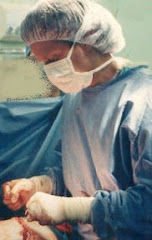
- Exclaim loudly, "This is my favorite rotation/specialty and what I want to do when I grow up." Without that gut wrenching enthusiasm, you look as if you aren't interested. Enthusiasm goes a LONG way.
- No bitching about anything. Indirectly you are commenting about the environment that your superiors have chosen to work (and thus commenting on their mental capacity). Besides, does complaining help? Moreover, there is nothing they can do to you in 4, 6, 8 or 12 weeks that you can't get over.
- Lead, don't wait to be lead. Figure out on your own what needs to be done and do it. Short of practicing medicine, try to anticipate the scut work that needs to be done and just do it!
- Help your fellow students, interns and residents SHINE! If they look good, you look good. Nothing off your back if you help them succeed. Keep them up to date about their patients. That's your job.
- Be inquisitive and ask good, thought out questions. Your curiosity stimulates teaching, and your own learning. But don't ask questions that are easily searched on your smart phone. Ask questions that are about the how and why things are done in the mind of the attending or instructing physician.
- If you don't know, say "I don't know". It'll likely stimulate a conversation or explanation...or at worst, a "go look it up and tell us about it tomorrow. BTW, more chances than not, they'll forget to ask you about it tomorrow.
- Make the nurses, techs and other clinic and hospital staff love you. Alienating a trusted staff member of the attending/physician is rotation suicide. They'll be there long after you are gone and are more likely to be defended as "family" by others working with them.
- Show up early, stay late. This shows your respect, interest, dedication, and ability to organize your life around the most important things at this time...the rotation, your attending, and your learning.
- Try stuff you are frightened of within the parameters of your learning. Sit down and create a treatment plan based on your assessment and run it by you supervising doc. Test your knowledge regularly without waiting for the doc to do it.
Focus on the success pathways in rotations.
Avoid the potholes.





